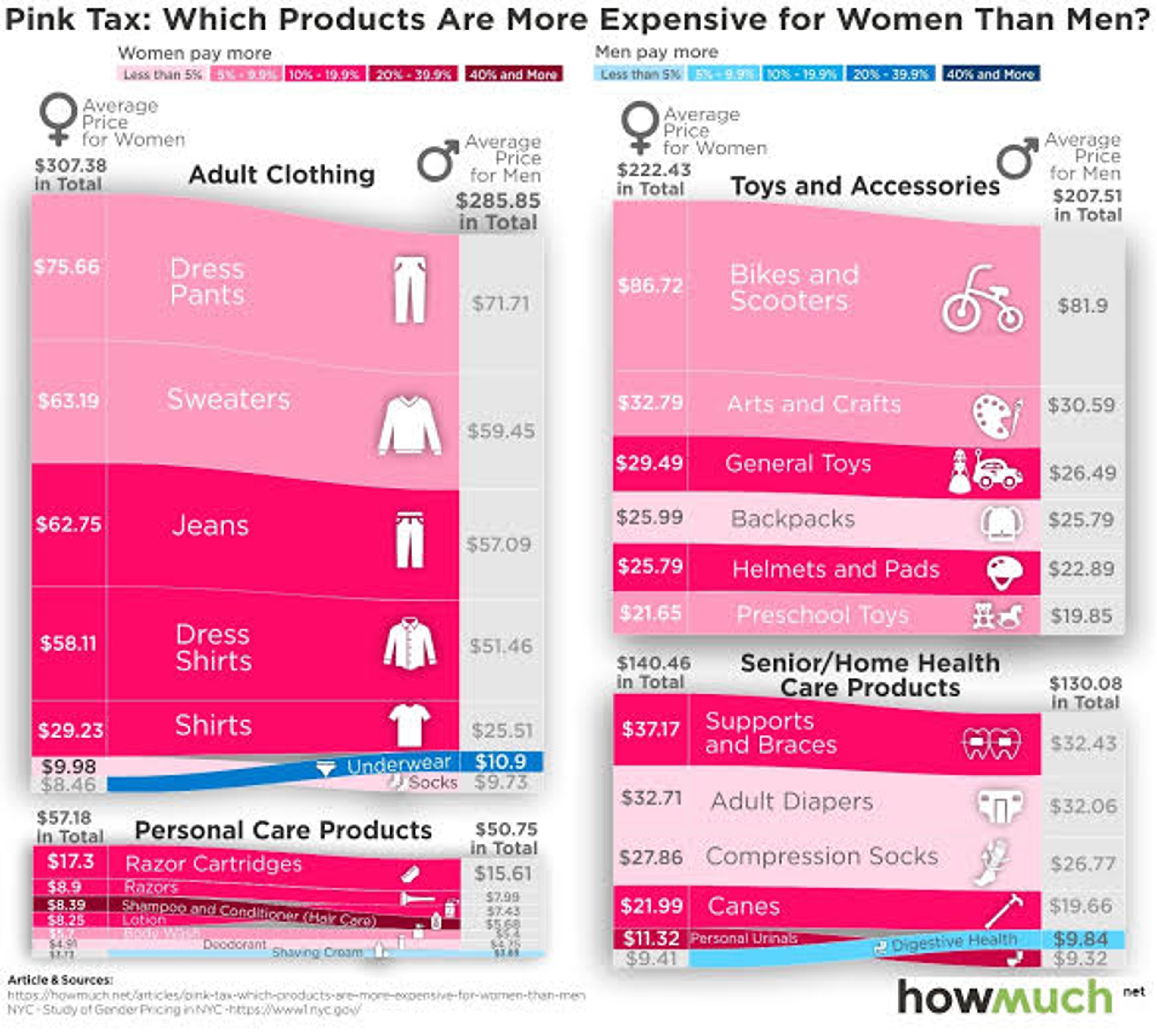The Shocking Reality of The Pink Tax: Why Does it Cost More to Be a Woman?
Hiba Shaikh Ansari
Published
Have you ever noticed that products and services for women are more expensive than those for men? How does simply giving products a delicate appearance—often by making them pink—help brands draw in more customers? Men and women frequently purchase similar everyday goods. However, studies show that consumer goods marketed and advertised to women often cost more than comparable goods marketed to men. This inequality is referred to as the “Pink Tax.” It refers to gender-based price discrimination, where women are made to pay more than men for the same products and services. In other words, it’s not actually a tax but an “income-generating proposition for private businesses that managed to make their product appear either more geared toward or more appropriate for a specific segment of the population.“
Pink tax is a prevalent phenomenon. According to research, women spend more than twice as much shopping as men do on average. Similar personal care items marketed toward women were 13% more expensive on average than comparable items marketed toward men. The report claims that overall, women spend significantly more money than men do on comparable goods. Meanwhile, an analysis in the UK found that women’s deodorant was on average 8.9% more expensive than men’s, and the cost of facial moisturizer for women increased by 34.28%. In India, we do not have any reliable evidence to show the existence of a pink tax, which gives rise to the argument that the pink tax is non-existent in India. It would be more accurate to say that there is no actual pink tax on women’s products in India, but that there is a gender price gap in goods and services.

Given that women continue to earn less than men, the “pink tax” has long placed a financial burden on them. According to the Global Gender Gap Report 2022, this year, 129 countries reported that fewer women than men were participating in the labour force. According to the report, one of the most obvious factors causing overall gender-based wealth inequality is the gender pay gap. If women, or someone who buys products marketed to women, are forced to pay more for a pink or delicate razor than a blue one, that is unjust and discriminatory. In order to get them to spend more money, capitalism and popular culture sell them their insecurities and self-consciousness. Big businesses and brands frequently view women as “feeble-minded” and insecure targets who are only used to increase profits. The world is full of sexist advertisements that sell fairness creams while instilling an ever-evolving ideal of beauty. I believe if women don’t start accepting who they are, the battle will never be won. Women must understand what their bodies require and resist being misled by advertising.

Some strategies can be incorporated to avoid falling prey to the “pink tax.” There should be awareness about the topic. Charging more for necessities like sanitary pads and tampons is nothing short of extortion, but one witnessed how public outcry and protests compelled the government to eliminate the tax on sanitary pads. Instead of adhering to the manufactured roles that society has imposed on women, there should be a self-assurance when they make purchases of items that may not fit the mould of the stereotypical woman but are still beneficial to their financial situation. There should also be a boycott on discriminatory products and brands. Every branded item has a perceived value in addition to its actual value. The price will increase if the perceived value is higher. Marketers are aware of the needs and financial capacity of consumers. One can avoid buying things that have unfair pricing structures based on gender. People must also express resistance. Women make up the majority of consumers in the Indian market, so they must never undervalue their influence. The next time a retailer tries to charge you more money just because you’re a woman, question them and register your resistance. Speak out against the sexist practices of such businesses and show your support for those with non-discriminatory or gender-neutral pricing practices.
Hiba Shaikh Ansari is a student pursuing English Honours from Jamia Millia Islamia.
Edited by: Bushra Faridi




